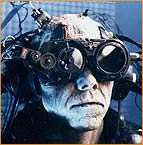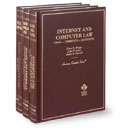
Charles Schulz, creator of the
Peanuts comic strip, often spoke through Snoopy, the dog, to define various paths to happiness: Happiness is a warm puppy, for instance. The
Boston Globe, in an article this spring, included a short piece on a course at Harvard on positive psychology -- happiness, noting that happy people tend to go farther in politics and business, as well as living longer.
link.
My thoughts about happiness:
* Happiness isn't increased by ambition or lots of money and goods. I think after you have enough to be secure about your food, housing and health, extra money actually decreases your happiness. For one thing, you get used to the amount, and quality of stuff you have, and it stops being a kick -- sort of like using cocaine the first time is a real high, but it's never that good afterwards, and gets less good with use.
* Comparing yourself to others is a sure road to unhappiness (unless you focus on your reasons for being grateful). The more you compare yourself to others, either in terms of recognition or wealth or status, the more unhappiness you pile up for yourself.
* Happiness is increased by:
# Having good and healthy relationships; friends and significant others; feeling a sense of community and support;
# Finding meaning in life, either through personal philosophy or religion;
# Having interesting, exciting and fun goals to work towards. If you have some challenge in your life, not overwhelming, but enough to make you stretch, I think you end up being a lot happier;
# Cultivating gratitude. Notice the little things like blue skies, sunshine, raindrops, flowers and beautiful sunsets. Pay attention to happiness in the moment, rather than looking always to the future;
# Happiness. Being happy increases happiness in several ways. It's a state of mind that I think you can practice and cultivate. But also, happiness draws others to you. People like to be around happy people, so your sense of community, and maybe even your personal relationships and success will improve when you "put on a happy face."
In snooping (hah!) around the Internet, I found several interesting sites about happiness:
Authentic Happiness (Penn) Link. Cool site from the director of the University of Pennsylvania Positive Psychology Center. Features a number of questionnaires you can take, or just examine, and helpful, free resources. A reliable-seeming site, from an academic source.
BBC Happiness Report (June 8, 2006) Link, including a number of video clips, news shorts, reports on happiness surveys in Britain. Bibliography, too! The videoclips are not terribly clear, but the sound is good and the reports and interviews are interesting, if somewhat shallow (TV can't go as in-depth as print media).
World Database of Happiness (really!, run by a guy at Erasmus University in the Netherlands, and presented, happily, in English: Link. Seems to mostly be designed for researchers who want to design questionnaires to test people's happiness. Interesting questions, though, such as:
"On the whole how satisfied are you with the life you lead?"
4 very satisfied
3 fairly satisfied
2 not very satisfied
1 not at all satisfied
Code: O-SLL/u/sq/v/4/b
Used in Euro-barometer surveys, bi-annual general population samples in all EU member states, since 1973
Reference: Website Eurobarometer: www.za.uni-koeln.de/research/eurolabor
There are also fascinating graphs showing happiness from questionnaires over the past 30 years for European countries and the U.S. (we are slightly happier now than 30 years ago, but happier numbers are higher here than in Italy, which experienced a greater increase in happiness measures over the same period. Not quite as happy as Denmark and Belgium, and happier than Japan and France. Who knew? I wonder how happy happiness researchers tend to be?
An article about an India-born neurologist in the U.S. who counsels striving for non-medicated happiness. (please take his recommendations with a grain of salt, because anti-depressants are GOOD if you are clinically depressed!). Link. Dr. Pasupuleti says in the interview, sparked by his book Change Your Mind: A Neurologist's Guide to Happiness" (Synergy Books):
"Learning to be happy is not a mystical pursuit," says Pasupuleti, who lives in Flint, Michigan, with his wife and four children.
"In my years as a neurologist, I have noticed that people who are happy meet their problems with a positive attitude, even in the face of suffering." ... Pasupuleti's practical guidance is rooted in his study of psychiatry, neurology and various world religions.
Through these experiences, he has found that people who keep an open mind are better equipped to deal with problems because they maintain higher levels of happiness in the face of turmoil.
Pasupuleti's tenets include the belief that material possessions are meant to be enjoyed but don't ultimately create lasting happiness.
He calls on readers to understand where negative emotions come from as this will help control and overcome them.
And finally, The Happy Guy Link. This site has articles, a poem, free advice and links to buy this guy's book, The Get Happy Workbook, or sign up for nine e-mail classes. The site seems helpful and harmless, but I have not signed up for anything, so think hard about receiving advice on your e-mail from somebody you don't know -- either bad advice, spam or possibly, viruses could result! That wouldn't make you happy, would it?
The decoration for this page is from http://snoopy.co.jp/newsdesk/archives/2005/03/24/pr003.html, which seems to be an order site in Japanese for Snoopy items.









